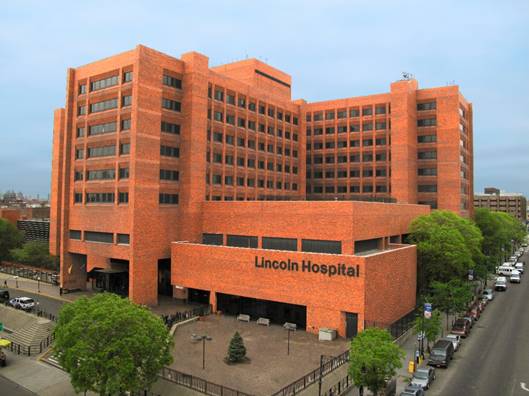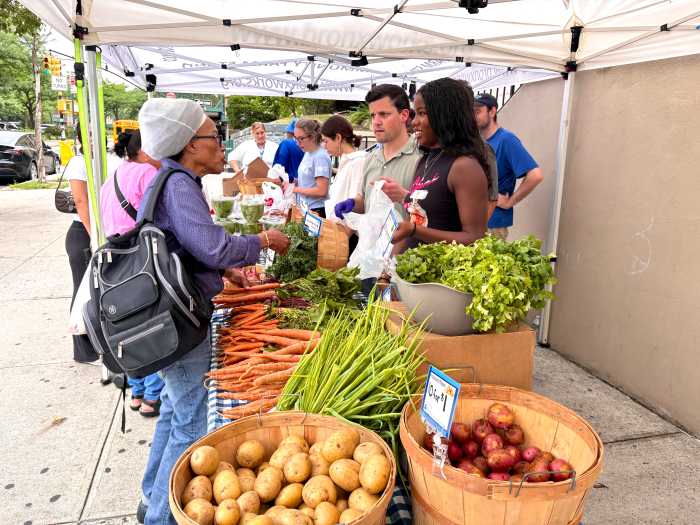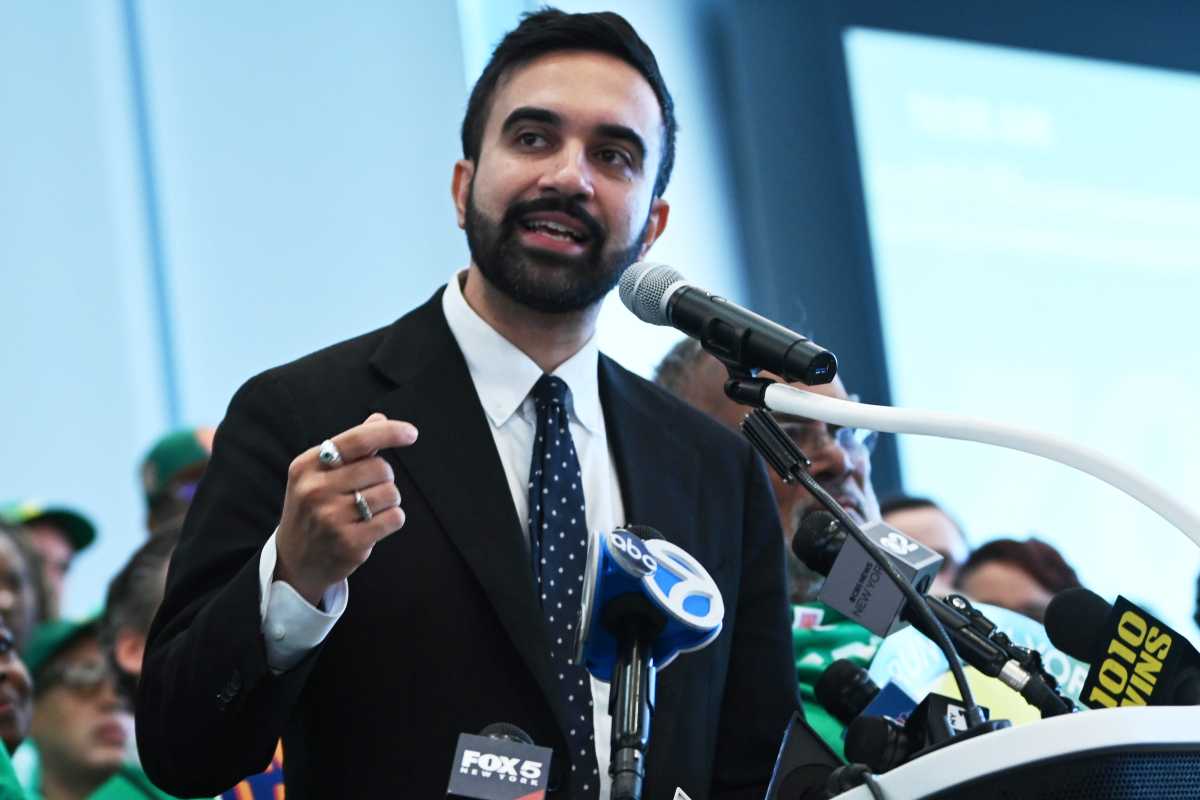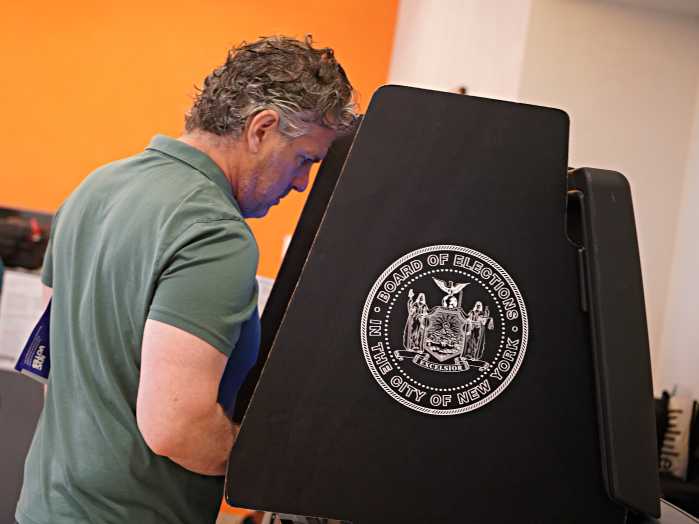The Mother Cabrini Health Foundation announced on Jan. 17 that it has awarded 514 grants totaling $172 million to support nonprofit organizations addressing community health needs and disparities in health outcomes across New York State in 2024.
Based on an analysis of community needs and feedback from frontline healthcare and social service providers, the foundation refined its grant making strategy last year to focus on five core program areas: access to healthcare, basic needs, healthcare workforce, mental and behavioral health, and a general fund. This includes support for increasing access to medical care among underserved communities, addressing social determinants of health like food and housing, building a more diverse healthcare workforce amid staffing shortages, and supporting mental and behavioral care for vulnerable New Yorkers.
“Our grantees are on the front lines each and every day helping to improve outcomes for underserved New Yorkers,” said Alfred F. Kelly, Jr., executive chairman of Visa and chair of the Mother Cabrini Health Foundation board.
In response to a range of urgent health crises in New York, the foundation increased funding to address the mental health crisis by 40% year-over-year, with the majority of grants dedicated to programs supporting youth. Grant funding to build and maintain New York’s healthcare workforce significantly increased by 57%, and the foundation maintained its commitment to supporting migrants and immigrants with over $18 million in funding spread across the five core program areas.
Grant recipients include community-based organizations, healthcare providers, food banks, social service centers, nursing homes, schools, federally qualified health centers and trade associations.
In the five years since its inception, the foundation has now awarded approximately 2,700 grants totaling more than $800 million.
Core program areas and grantees in 2024 include:
- $43 million to help New Yorkers meet their basic needs so they can overcome challenges that impact their ability to build healthy lives. The 176 grants will address key obstacles, such as access to benefits and services. This will be accomplished through strengthening the social safety net and helping New Yorkers navigate the complex social care and healthcare systems to access services and entitlements;
- Food and housing by addressing growing food and nutrition insecurity exacerbated by the end of the COVID-19 public health emergency and by providing supportive services to keep vulnerable New Yorkers safely and stably housed;
- And economic stability and mobility by promoting financial education, job training and emergency financial assistance.
“Addressing New York’s immediate and long-term health needs requires a comprehensive approach,” said Gregory Mustaciuolo, CEO of the Mother Cabrini Health Foundation. “Over the past five years, we have provided funding across the state to communities struggling with heightened health inequities. While responding to urgent needs, we’ve also focused on building strong community relationships, funding long-term infrastructure and pursuing community input so that our grant making efforts are as impactful and sustainable as possible for underserved communities both today and for years to come.”
Funded programs include Home HeadQuarters, whose mission is to create housing opportunities in central and upstate New York for individuals and families and improve the communities in which they live, and Ariva, Inc., a Bronx-based financial counseling and tax prep organization offering free services in Spanish.
The grants will also be allocated to assist with healthcare. The grants allocate $28 million to expand access to healthcare to ensure all New Yorkers can access the health services they need, when and where they need them, without financial hardship. The 75 grants will tackle key obstacles to accessing healthcare, such as physical accessibility by bringing services to underserved communities through mobile clinics, community health workers, mobile screenings and telehealth.
They will also aim to promote cultural accessibility by increasing the availability of culturally competent care for immigrants and underserved populations.
In addition, affordability will be emphasized by providing high-quality health services to all New Yorkers, regardless of insurance status or ability to pay.
Funded programs include Memorial Sloan Kettering Cancer Center’s mobile health unit, which offers health screenings and healthcare education for underserved and immigrant communities in New York City, and Loretto Management Corporation’s opening of a dedicated 40-bed memory special care unit at its skilled nursing community in Cayuga County, at the Commons on St. Anthony.
There will be $22 million allocated to build and expand New York’s healthcare workforce to improve access to care, quality of care and cultural competency. The 60 programs will demonstrate the foundation’s commitment to several goals, including building the pipeline of healthcare workers starting in high school with programs tailored to providing teens exposure to and specialized training for healthcare professions.
These programs will also be focusing on nursing by addressing the myriad factors contributing to the current shortage of nurses, including recruitment, retention and the nurse-educator pipeline.
In addition, they will strive toward the goal of advancing education and training to bolster the pipeline of talent for in-demand healthcare careers while creating career opportunities for low-income New Yorkers.
Funded programs include Calvary Hospital’s training program to expand palliative care, hospice care and end of life care in the Bronx, and Associated Medical Schools of New York’s Diversity in Medicine scholarship.
Another core program includes $20 million to expand mental and behavioral health services through 81 grants that will increase access to quality services for historically underserved communities and those with acute needs, among other things, such as emphasizing a focus on young people from birth through young adulthood, addressing prevention and treatment in schools, youth development programs and clinical care.
In addition, it will combat the opioid crisis and addiction by helping underserved individuals and families recover from substance use disorder and addiction.
Funded programs include Finger Lakes Systems’ Common Ground Health’s efforts to improve infant and early childhood mental and relational health and emotional needs in Rochester and the Finger Lakes region and The New York Foundling, which provides trauma-informed individual and family counseling for NYC youth in foster care.
Finally, the program will allocate $30 million to the General Fund to support 89 projects that contribute to the overall improved health and wellbeing of New Yorkers. The themes within the General Fund include legal services for immigrants and refugees. As migrants continue to enter New York, grantees are providing pro-bono legal services to support the pursuit of legal status.
Additionally, they will emphasize the importance of childhood development. Grantees are supporting strong beginnings through early intervention, early childhood education and parental support.
Additionally, they will support the pursuit of education and youth development. Grantees are increasing opportunities for young people through scholarships, after-school programming and academic interventions.
Funded programs include Kids in Need of Defense, which provides legal and social services to unaccompanied migrant children in New York, and Albany Housing Coalition’s case management programs, which connect homeless and at-risk veterans with supportive housing, employment and resources for success.
An additional $29 million will support special initiatives dedicated to specific populations, such as people with disabilities, older adults and immigrant communities.
Roughly 50% of this year’s grants are renewals, reinforcing the foundation’s commitment to expand successful programs, while also supporting new grants that respond to developing needs.
“Our 2024 grants will provide over 500 nonprofits with the resources to bolster innovative and life-changing programs across New York State. From prioritizing mental health to helping newly arrived immigrants navigate complex legal systems, grantees will continue to impact every corner of New York and help communities thrive,” said Kelly.
In spring 2023, the foundation invited organizations to apply for funding through an open process, receiving over 1,500 letters of interest, both from returning grantees and new organizations. Nearly half of the year-end grants for 2024 programs were for $250,000 or more.
“By consistently engaging with grantees and their communities and letting them take the lead in identifying their needs, our team is better able to understand the common challenges New York’s nonprofits face,” said Kathryn Ruscitto, chair of the Mother Cabrini Health Foundation’s Regional Grants Committee. “In doing so, we can better empower our tireless grantees to overcome obstacles, deliver for the needs of their communities and build a more equitable New York.”
For more coverage, follow us on Twitter, Facebook and Instagram @bronxtimes























